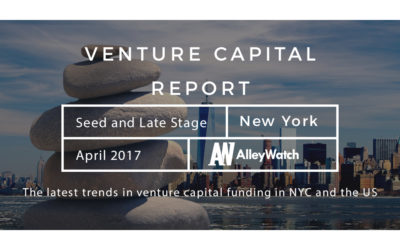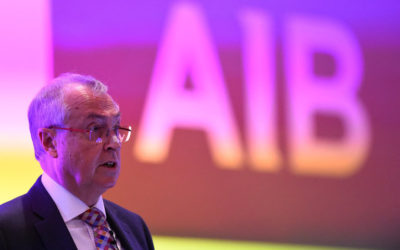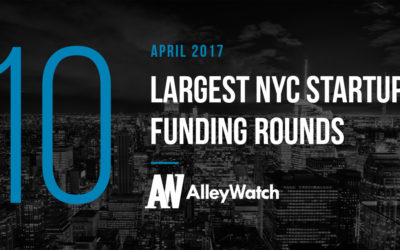Blue Apron Sets The Table For Initial Public Offering
Looking to cash in on hungry people seeking convenience, food delivery provider Blue Apron is ready to take its business public.
It would be the first company in the crowded food delivery market to go public.
One of Blue Apron’s closest competitors is Berlin-based Hello Fresh, which withdrew IPO plans last year.
The meals are delivered through the AmazonFresh grocery delivery service.
From inception through March 31, 2017, Blue Apron says it’s delivered more than 159 million meals to households across the U.S. About 60% of Blue Apron’s customers are in the age range of 25 to 44.
It showed a net loss of $54.9 million vs. a $47 million loss in the prior year.
In the first quarter, Blue Apron revenue rose 42% to $244.8 million, with a net loss of $52.2 million, vs. a $3 million profit in the year-ago quarter.
It spent $144 million on marketing in 2016, up from $51.3 million in the prior year.
IBD’S TAKE: IBD focuses on the best-performing IPOs of the past three years in its IPO Leaders column.
The other co-founder is Ilia Papas, 35, who is chief technology officer.
The state of the unicorn
The overwhelming majority of new entrants to the billion-dollar-valuation list hail from either the United States or China.
In the U.S., there were 13 new unicorns, while China produced at least eight so far this year.
Out of 231 companies on the unicorn board, 121 are headquartered in the U.S. and 66 are based in China.
So far this year, at least five companies on the unicorn board have gone public: Snap, Cloudera, Okta, MuleSoft and China Rapid Finance.
By comparison, there were five unicorn IPOs in all of 2016.
And while Snap shares are down from their initial post-IPO price, the company still has a hefty $25 billion valuation.
Yet not all newly public companies maintained or exceeded their prior private market valuations.
Enterprise software provider Cloudera priced shares for its May offering at about half the value they commanded in a funding round led by Intel three years earlier.
Germany’s Delivery Hero raised $420 million at a $2.7 billion valuation, nearly doubling from two years ago.
U.S.-based Instacart, meanwhile, raised $400 million at a $3 billion valuation, up more than 50 percent from its last round in 2015.
The April 2017 NYC Venture Capital and Early Stage Funding Report
The April 2017 NYC Venture Capital and Early Stage Funding Report.
Today, I take a look at the state of venture capital and angel funding during the month of April, both in New York and nationally.
One Minute Takeaway NYC’s funding landscape recovered from two consecutive dismal months.
Reaching more individuals in a single month than every other tech-focused organization in NYC combined, AlleyWatch is the highway for technology and entrepreneurship in New York.
There are a number of options to reach this audience of the world’s most innovative organizations and startups at scale including sponsoring a piece like this, which will be read by the vast majority of movers and shakers in the NYC entrepreneurial universe.
Find out more here Follow @Reza Chowdhury Recognized as a global thought leader in the startup ecosystem, Reza Chowdhury offers more than 15 years experience in emerging technology, which he brings to AlleyWatch as CEO and Founder.
Through the course of his career, Reza has had the privilege of working to drive businesses from conception to eventual exit by deploying the acumen gained in his previous roles.
Reza is also the founder of New York Startup Lab, which brings technology and knowledge based solutions to the entrepreneurial community with a specific focus on early stage companies.
He began his career as securities trader on Wall Street.
Reza has also completed certification programs in Private Equity and Venture Capital at Oxford University as well as International Business at New York University.
What’s the Matter with the IPO Market? That Is the Wrong Question
When the equity market was performing well and volatility was low, the IPO market was typically very active.
In the Strategic Equity Finance course at Wharton, we discuss why some companies go public and others stay private.
Some of the reasons for each include: Why Some Companies Go Public: Raise equity capital – in some cases, large amounts or in sectors where private financing isn’t as prevalent.
Why Some Companies Stay Private: Have sufficient access to capital; Prefer no/limited disclosure (i.e., SEC filings); Like to “control their own destiny” – with increased public shareholder activism in recent years, companies like Dell prefer being private.
While I had written about the increasing activity in the private venture market of prominent public market equity investors such as Blackrock, Fidelity and T. Rowe Price, I failed to note the increased buying power of private equity firms.
“While accessing the vast pool of private capital is one path companies have pursued instead of going public, another path being rumored by prominent ‘unicorn’ Spotify is a direct listing.” While not all of this money is focused on investing in private companies, more private equity firms in recent years have been actively investing in private companies across sectors, such as Ajax Health, Chobani, Cloudreach, SoFi, Tom’s, and Uber.
Additionally, private companies have received financing to pursue strategic activities such as SilverLake increasing its investment in Dell to facilitate its recent acquisition of EMC.
This lock-up is designed to create an orderly market for the shares as the stock “seasons.” The challenge of an IPO lock-up, however, is if there is tremendous demand for the IPO shares being offered, the stock can “pop” and trade up significantly.
The challenge is, as this filing is public, in addition to the media reporting this positive news, investors realize the offering is well over-subscribed and likely to “pop,” meaning that the share price on the first day rises sharply above the IPO offer price.
With alternative paths evolving and taking away potential interest for companies to do IPOs, maybe the IPO process may evolve too – which would be a good thing.
Former Mozilla CEO raises $35M in under 30 seconds for his browser startup Brave
ICOs operate by selling investors cryptocurrency, which can be used to store value in many ways beyond a traditional share.
A further 500 million BAT is stored for user growth and “BAT development,” according to Brave, which is not planning another token sale in the future.
The ICO is the highest grossing to date, and Brave’s business itself is one of the more interesting to make use the blockchain.
Eich, who created JavaScript but left Mozilla in 2014 in controversial circumstances, had raised $7 million from investors including Founders Fund for Brave.
He believes the current internet advertising system is inherently broken, and his ambitious proposal uses the blockchain to make things more efficient for all parties, advertisers, publishers and users, too.
Kik, a messaging service popular with young people in North America, recently announced plans for its own ‘Kin’ coin which it will use as a virtual currency to pay for related goods and services, and that’s the same approach Brave has taken.
Brave’s pitch to consumers is faster loading times, tighter privacy controls and even the potential to earn money simply by reading content.
More immediately, it said it will use the proceeds of this ICO to develop its advertising platform.
One notable anecdote of the Brave ICO is how the process was dominated by a handful of individuals.
Only around 130 people actually bought BAT, Coindesk noted, with one buyer scooping up $4.6 million of them (20,000 ETH worth).
Julie Desk, an ‘AI virtual assistant’ that helps you schedule meetings and more, scores €2.5M funding
Hubble, a ‘digital platform’ to help businesses find flexible office space, raises £1.2M
Hubble, a ‘digital platform’ to help businesses find flexible office space, raises £1.2M.
Hubble, a London-headquartered a startup founded in 2014 to ride the coattails of the trend towards flexible office space, has picked up £1.2 million in new funding.
Leading the round is Firestartr, with participation by 500 Startups, Maxfield Capital, and Concrete.
However, it has since expanded its platform to also serve the needs of traditional SMEs and larger corporates — and, I’m told, is seeing a huge uptick in companies wanting more flexibility since the result of the Brexit referendum.
More broadly, Agarwal tells me, Hubble’s growth is a reflection of how the commercial property market is shifting away from lengthy, multi-year office space leases to short term rentals with ‘out of the box’ features, and therefore less commitment or costs up front.
It’s also a change, he argues, that traditional property letting agents aren’t well-positioned to cope with and where technology is the only way to scale because of the increase in the sheer number of transactions, which also typically carry a lower basket price.
With today’s new capital, however — and to better serve its growing client base — the startup is building out its platform to act more like a “digital commercial property advisor” that will better use the data Hubble has and is accumulating to automate the office space search process in a more personal or bespoke way.
Adds Agarwal in a statement: “Hubble is the driving force behind a trend that is seeing traditional commercial property agents quickly becoming obsolete.
As technology has enabled the number of freelancers and SMEs in the world to grow at an unprecedented rate, they are rapidly displacing Fortune 500 companies from the physical real estate they traditionally occupy – the bread and butter of traditional agents.
The economics of the labour intensive model of property agents just don’t stack up with the future of work.”
Boom Fantasy raises $2M, betting that fans want a simpler version of fantasy sports
Balancing Politics and Pragmatism in Irish Bank I.P.O.
How this contacts startup is fighting optometrists to survive
The 10 Largest NYC Startup Funding Rounds of April 2017
The 10 Largest NYC Startup Funding Rounds of April 2017.
Armed with some data from our friends at CrunchBase, I broke down the 10 largest rounds in New York during the month of April.
I have included some additional information such as industry, round type, investors in the round, and date of funding to further the analysis for the state of venture capital in NYC.
To maintain a focus on tech-enabled startups, real estate companies were excluded.
The AlleyWatch audience is driving progress and innovation at a global scale.
Reaching more individuals in a single month than every other tech-focused organization in NYC combined, AlleyWatch is the highway for technology and entrepreneurship in New York.
There are a number of options to reach this audience of the world’s most innovative organizations and startups at scale including sponsoring a piece like this, which will be read by the vast majority of movers and shakers in the NYC entrepreneurial universe.
Find out more here.
Read Mary Meeker’s essential 2017 Internet Trends report
Read Mary Meeker’s essential 2017 Internet Trends report.
This is the best way to get up to speed on everything going on in tech.
Kleiner Perkins venture partner Mary Meeker’s annual Internet Trends report is essentially the state of the union for the technology industry.
The widely anticipated slide deck compiles the most informative research on what’s getting funded, how Internet adoption is progressing, which interfaces are resonating, and what will be big next.
You can check out the 2017 report embedded below, and here’s last year’s report for reference.
Check back soon for our picks for the most important slides and what they mean.
Here are a few initial takeaways: Smartphone sales and Internet penetration growth are both slowing It’s not really a “shift to mobile” as much as “the addition of mobile”, since desktop usage hasn’t declined much while mobile usage has skyrocketed to over three hours per day per person in the US There’s still more time spent on mobile than ad spend, indicating forthcoming windfalls for mobile ad platforms Google and Facebook control 85% of online ad growth Internet ad spend will surpass TV spend within six months “60% of the most-highly valued tech companies in America were founded by first or second generation Americans” “We believe we’re in the era of compute power plus human potential and it’s really exciting”
This Intense Robot Priest Can Give You Your Next Blessing
This Intense Robot Priest Can Give You Your Next Blessing.
Need to repent?
With this new robot, that’s as easy as using a fast food kiosk.
From robot chefs to concierge service, we already live in a world where robots take the place of some humans.
The newest human-like machine to come to life is a robot priest called “BlessU-2.” The new clergy member is an experiment by a local Protestant church in Wittenberg, Germany, where members seek to spark debate over the future of the church and technology’s role in it.
BlessU-2 is also being used to mark the 500th anniversary of the start of the Protestant Reformation led by Martin Luther.
“We wanted people to consider if it is possible to be blessed by a machine, or if a human being is needed,” Stephan Krebs of the Protestant church in Hesse and Nassau told The Guardian.
Through the touch screen on its chest, select your language and the blessing you wish to receive.
While it raises its arms and flashes lights through its hands, BlessU-2 performs a blessing or bible verse, also reciting the lines, “God bless and protect you.” It gets better — worshippers can customize their holy experience, choosing a female or male voice and German, French, English, Spanish or Polish.
While Krebs and his colleagues continue to experiment and analyze the robot priest, they raise the question of technology’s role in religion.
Yogome, a Mexican startup that makes educational games for kids, raises $6.6M
Yogome, a Mexican startup that makes educational games for kids, raises $6.6M.
Yogome, a Mexican edtech startup that makes kids games for the iPad, has raised $6.6 million in Series A funding.
Leading the round is Spanish VC Seaya Ventures, with participation from Variv Capital, and Endeavor Catalyst.
The company had previously raised $3.2 million in seed funding and is also backed by 500 Startups.
Its mini-games claim to be pedagogically sound and are developed in conjunction with educational experts, including work done with Yale University to measure the efficacy of the company’s math games for 1st grade students.
“Kids are our users and parents our customers, that’s why we need to make sure that the product is as educational as we can so parents are confident about their kids using the product,” he adds.
Getting kids “hooked” also feeds into Yogome’s subscription-based revenue model.
The startup’s app can be downloaded for free and comes with 25 credits which allows for 2 hours playing time.
To continue, parents are asked to select a monthly or yearly subscription that provides unlimited access to the game-based curriculum covering 8 different subjects (from maths to coding to health), which are available in 4 different languages.
Meanwhile, I’m told that 95 per cent of Yogome’s subscribers are in the U.S., Latin America, and Southeast Asia, while the startup has seen take up in more than 50 countries.
What to Consider Before Accepting Venture Cash
Many of them are chasing the big venture capital firm and angel investor dollar.
If you are in the small percentage of companies that actually get VC funded, you are in the minority.
Of those that do get funded, only a few of them succeed.
VC firms make their money on hype.
I did more market research and found cheaper options for the consumer on various platforms, such as Groupon, LivingSocial and other moving companies that didn’t want the hassle with small markups.
Focus on marketing and selling before you invest in any business to make sure you can make revenue quickly and then build your product.
Before I start any business, I make sure if fulfills a need in the marketplace and fund it with money I have made.
Focus on revenue; not on getting funded.
Make sure you have the power to make those decisions for your company.
All good things come to those who make money before asking for money.
India’s Magicpin raises $7M to connect consumers and local businesses
Author: Jon Russell / Source: TechCrunch Magicpin, an India-based company that combines elements of Foursquare with offline-to-online services, has closed a $7 million Series B round. The money comes from existing backers Lightspeed India Partners,...
Top 10 tech startups packed into Vancouver
A total of eight funding rounds have backed Zymeworks with $125.87 million in financing.
After their initial venture funding, $4 million followed in October 2012, $13 million a year later, $30 million in Series B in January 2014, and finally $50 million in December of that year.
They raised $110.27 million in total once they got tech-i-fied with their online design tools.
Opening their cloud-based doors in March 2010, Visier pulled in $6 million in Series A funding in September 2011.
Indochino Can a suit maker be considered a hi-tech startup?
Starting in March 2011, the company received Series A, B (March 2013), and C (March 2016) funding rounds for $4 million, $13 million, and $30 million respectively: That sounds like a hi-tech venture company to us.
Vision Critical You have customers, but how much do you really know about them?
Sparq is the customer insight engine that organizes your customers into loyal friends.
Six months later, $1 million in venture funding arrived followed by three more rounds, raising their total financing to date to $32.85 million in six rounds from a dozen investors.
Research started with $300,000 in seed money and Trulioo was founded a year later.
Top 10 tech startups packed into Vancouver
Author: James Gaskin / Source: Geektime Photo courtesy: ecstaticist via Flickr Scenic, smart, sea port, and sustainable do a good job of describing Vancouver and the startup scene Some may call Vancouver the Canadian Seattle, since it’s just north of...


















